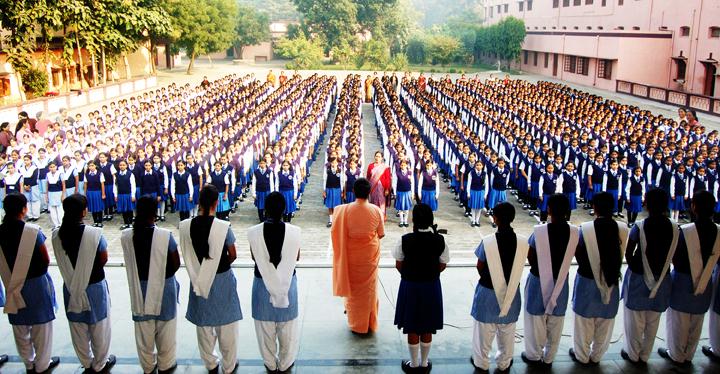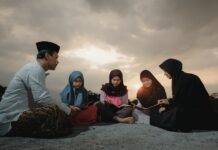In this thought provoking article— based on a lecture delivered by the author at Lady Shri Ram College, DU—Professor Avijit Pathak has pleaded for a radical departure from the fundamentals of a violent/hierarchical society and its faulty pattern of education.
Avijit Pathak is a Professor of Sociology at JNU, New Delhi.
LSR, once again! I know that I am here because of Dr. Tripti Basi—her eagerness to make me speak on alternative education. I am happy to find myself amidst great educationists and bright young students. I will try my best to do my job as sincerely as I can. However, before I begin I wish to state something very important. I am not here to speak a bookish language—a typical academic discourse loaded with references. Well, I love books; books surround my existence. But then, at this stage of my life I have realized that books should not be allowed to constrain me, condition my mind and vocabulary. I love to trust my realization, my experience, my observation, my analytical framework more than what is written in books. And possibly, a new form of education begins with this trust in one’s own eyes.
You want me to speak on alternative education. These days everyone is speaking of alternative education; even mainstream schools that virtually look like a factory love to sell ‘alternative’ packages—child-centric learning, project work, summer camp and creative writing, emotional intelligence and spiritual development. Or for that matter, for a social class endowed with a distinctive cultural capital, ‘alternative education’ exists in esoteric/solitary islands—Rishi Valley or Mirambika! In fact, we live in a world in which the market appropriates even dissenting/alternative voices. Not surprisingly then, alternative education is also seen as a ‘product’ for consumption by those who can afford it.
I, therefore, want you to ask a question: Alternative to what? Do puppetry, clay modeling and farming invariably make a school alternative? Not really. In fact, a truly alternative or life-affirming education, far from being merely decorum or an ornament, is essentially a radical departure from the prevalent socio-political and educational practices. In order to make my arguments clear I will divide my presentation into two parts.
Here is a Hierarchical/Violent Society
To begin with, it is important to familiarize ourselves with the nature of society we are living in—the historic context of the debate. Friends, I want you to acknowledge that here is a society that is recklessly hierarchical, competitive and violent. For instance, think of hierarchy as a state of consciousness. We know that the institution of caste as some sort of graded inequality continues to exist in our times, despite the efforts made by the likes of Gandhi and Ambedkar. See its consequences. It causes violence—physical as well as cultural; its roots lie in the way we see the world through a series of binaries: ‘purity’ and ‘pollution’, ‘mental’ and ‘manual’, and ‘cognitive’ and ‘experiential’. With this traditional hierarchy, we have now yet another practice of hierarchy caused by the economy of neo liberal global capitalism. Because of its inherent social Darwinism, it excludes those who cannot fit into its market-driven rationality of job skills, productivity, efficiency and performance. No wonder, together with the dichotomy of ‘Brahmin’ vs. ‘Dalit’, we have now techno-managerial elites pampered by the corporate, and separated from the peasantry, the subaltern masses and the marginalized castes and classes. Take a simple illustration. Have you noticed how hierarchical the urban space is becoming?
What do these gated communities with private security, private water supply, private swimming pool and clubhouse indicate? These fortified apartments in our cities exclude others, and nurture a mind that sees the poor as dirty, non-hygienic, problematic, and a threat to the beauty of the city. In a way, it is yet another practice of untouchability.
Friends, see yet another paradox in our society. Here is a divided society with extreme form of inequality. Yet, the expanding culture industry filled with market-driven seductive spectacles seems to have democratized our aspirations. In a way, billboards, all sorts of ads and television-induced coded messages are persuading all of us to see the alliance of cricket, Bollywood and media celebrities as a reference group for imitation. The craze for this hypnotizing life style often affects the vulnerable minds. But then, the structural inequality is such that not everyone can acquire that life style. This contradiction emanating from the incompatibility of resources and aspirations is intensifying gross emotions like greed, envy, jealousy, violence, imitative tendencies and psychic restlessness. With two living examples, I will try to make you see the misplaced priorities in life.
I have seen school kids from marginalized sections pressuring parents to buy them fancy smart phones while it becomes difficult for them to buy new editions of NCERT textbooks. Likewise, when I see a child hardly ten years old from a small town participating in a reality show and singing a ‘heat’ Bollywood song I feel deep pain. I realize how in this visual age the urge to become a ‘celebrity face’ has affected even young children. No wonder, you need not be surprised if you find a young boy from Chattisgarh trying to look like Virat Kohli, and spending whatever he earns for ‘impressing’ his girlfriend. In fact, consumerism—and that too in a divided society like ours—has disturbed the rhythm of life. We all tend to think, behave, act and strive to look like others—those mythical stars constructed by the ‘hidden persuaders’ of global capitalism. As we lose ourselves, we prepare the ground for aggression and violence in everyday life.
Finally, you see violence in the cult of cultural nationalism with its celebration of militarization of consciousness. Think of it. With hyper-masculine aggression we become the children of ‘Bharat Mata’, and find vicarious pleasure in othering and eventually annihilating our ‘enemies’—‘pro-Pakistani anti-nationals’, ‘Muslim invaders’, ‘left/liberal/Gandhian conspirators’. The stimulant of this sort of nationalism makes it difficult for us to see the real contradictions in our society—exclusion and inequality, hierarchy and violence, consumerism and false dreams of prosperity.
Is Alternative Education Sufficiently Radical?
Under these circumstances, we are talking about education. I want you to ask a simple question. Does education as it prevails prepare us to interrogate this violent society, and strive for a new one? I think you would agree that education has failed us. We have learned only to adjust and conform; we have learned to lose all alternative dreams. Possibly, you are thinking that I am too harsh. I want to disturb you, friends. See the fundamental nature of this education. With the burden of bookish knowledge, it measures, quantifies and hierarchizes children through a heavily mechanized examination system causing the dialectic of euphoria of success and stigmatization of failure. From one’s school to a coaching centre to an institute of technology and management—what does one learn, friends? One learns to conform, one learns to close all the windows of one’s mind and remain one-dimensional, one learns to negate creative exploration and critical thinking, and one learns that alternative dreams are dangerous because there is only one thing that matters— placement and an attractive salary package. Or for that matter, what do you and I do? We too are victims of a new form of ‘brand consciousnesses’. We love hierarchy. We love ranking. We rank colleges and universities; we rank academic disciplines; we rank journals and publication houses. Marxists or feminists, postmodernists or Ambekarites—we are all running, competing and sharpening our egotistic pride and narcissistic culture of self-promotion through a sophisticated academic politics of networking.
In other words, education has made us clever and smart; it has not necessarily generated love, humility and compassion. We have become ‘experts’, but not necessarily lovable souls. Friends, I want you to ask a ‘stupid’ question (because in madness I see divinity): What do you do with all these Nobel prizes, Ph.Ds, research papers, publications and expanding growth of knowledge production in ‘top’ universities of the world, if at the end of the day we remain unhappy, violent, envious and neurotically restless? When you ask this simple question, you would begin to realize the significance of a genuine quest for a life-affirming alternative education.
I know that in your search for alternative education you would often refer to Paulo Friere and Gandhi, Ivan Illich and Jidu Krishnamurti, Tagore and Aurobindo. I also know that you would put great stress on diverse pedagogic tools and technologies like ‘learning through doing’ or ‘participatory learning’. Even though I do not devalue their importance I would insist that no meaningful alternative is possible unless we strive for a consciousness, a state of being that values the following;
Awakening is more important than information.
Today knowledge is often equated with information. A ‘knowledgeable’ man knows a great deal, we assume. And there is no dearth of information relating to science, technology, politics, history, culture and religion. In fact, in the age of internet we find ourselves in a world characterized by information pollution. Does information necessarily generate wisdom? Is a quizmaster necessarily a good human being? We need to realize that awakening is more important. For instance, it is not just important to know about war or about theories of caste. What is needed is an awakening that egotistic pride, narcissism, death wish and hierarchical mind cause war or caste violence, and it is love or a profound realization of our shared human destiny that enables us to fight all divisive ideologies. In other words, to love is more important than to read books and acquire information. If ‘intelligence’ is devoid of love, it becomes instrumental, manipulative and demonic. To love is more important than to theorize.
Sharing is more important than possessing.
Have you noticed how education has intensified our possessive urges? We tend to think that if we have more education we ought to have more material and social privileges. Moreover, we learn to compete, defeat others. With gold medals and other awards, we separate ourselves from the lesser mortals. We need to interrogate this. We need to realize that there is no greater joy than the act of sharing. When we possess, it restrains and limits us; it makes us fearful and insecure. When we share it expands our horizons; insecurity disappears, and togetherness blooms.
Flowering of each individual is more important than meritocracy.
Imagine a situation when none of us suffers from a sense of wounded consciousness or stigma of failure. Imagine a situation when we acknowledge diverse forms of talent, aptitude and inclination without hierarchy. Imagine a pattern of education that encourages young learners to know their specificities and unfold their hidden talents. It is sad that the cult of meritocracy based on a standardized notion of ‘success’ has been allowed to undermine people’s confidence in their own life trajectories. A sane/egalitarian/compassionate society is one that allows a farmer, a painter, a mechanic, a gardener, a doctor, a professor, a singer to live and excel in their works without any burden of superiority or inferiority.
Poetry of living is more important than fame and power.
When we ask our children to become ‘somebody’, we do a great damage to their organic growth. In the name of becoming ‘big’, they forget themselves, and strive for fame, success and power. As a result, they miss the extraordinary beauty in ordinariness, in simple things of life. This causes violence, perpetual urge to prove oneself and remain neurotic and restless. A life-sustaining education ought to open our eyes, and make us see and feel that there is no greater happiness than to find meaning in doing that one loves to do, in simple things of life.
This is difficult, you might say. Friends, who is saying that it is easy? You are right. The way society is structured, its politics and economics would never encourage this radical departure because the establishment wants the practice of education to reproduce the status quo. That is why, as I indicated at the very beginning, even ‘alternative’ education in our times tends to become mere decorum, a symbolic ornament. However, we should not forget our capacity to think and act differently, despite all sorts of structural constraints. Don’t lose hope in human possibilities even in these dark times.
ALSO READ
Mr. Modi, Children are not Warriors
The Trap of Scientism and Technocratic Rationality: In Search of Liberating Education
The Politics of Nation Building
***











